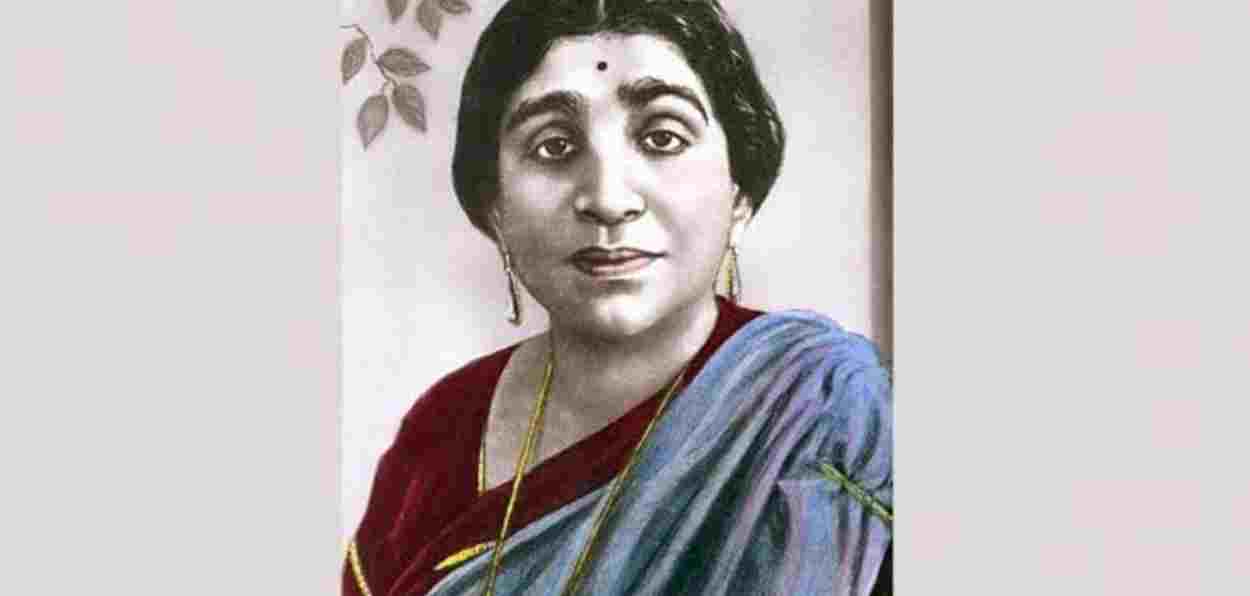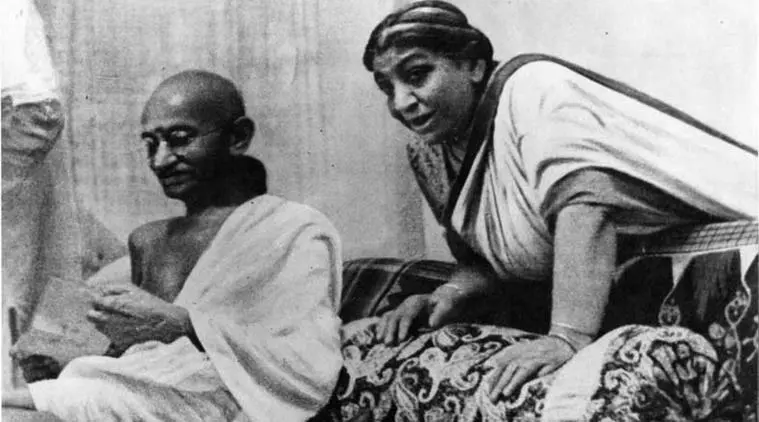
Rita Farhat Mukand
Republic Day is being celebrated all over the nation - as it has been since 1950, the day when the Constitution of India came into effect on 26 January 1950 embracing all Indians as equal stakeholders in a democratic nation.
On this day, the the core principles of liberty, equality, human dignity, individual rights, and the people's sovereignty are heralded as the foundation of all legal authority; rejecting monarchy, aristocracy, and hereditary political power.
Sarojini Naidu, known as the nightingale of India and India’s Super Woman and first woman freedom fighter, had a pivotal role in India’s struggle for independence from colonial rule, a supporter of civil rights to help establish the ethical principles of the Republic of India. In the mystical juxtaposition of fates, she never lived to see the Republic Day that she devotedly sought to establish, which transpired on 26 January 1950 as she died the previous year on March 2, 1949.
In the 1920s, Naidu increasingly directed her efforts toward the nationalist movement, aiming to secure both women's rights and political independence. In 1925, Naidu made history by becoming the first Indian female president of the Indian National Congress, underscoring her significant influence as a political leader. She was also appointed as governor of Uttar Pradesh.
 Sarojini Naidu speaking to Mahatma Gandhi at Congress meeting
Sarojini Naidu speaking to Mahatma Gandhi at Congress meeting
Sarojini Naidu transformed everything with her golden touch leaving behind a powerful legacy for India while inspiring millions of people with her life, starting writing at the early age of 12. Born on 13 February 1879 into a Bengali family in Hyderabad, she was an intelligent child, proficient in multiple languages including English, Bengali, Urdu, Telugu, and Persian.
Naidu’s literary work as a poet earned her the nickname the “Nightingale of India”, or “Bharat Kokila” by Mahatma Gandhi because of the vivid colour, powerful imagery, and song-like lyrical quality of her poetry. Her poetry written in English, took the form of lyric poetry in the tradition of British Romanticism, which she was sometimes challenged to integrate with her Indian nationalist politics.
The Bazaars of Hyderabad” is one of her most popular poems published in 1912 with a snippet shared below:
What do you sell O ye merchants?
Richly your wares are displayed.
Turbans of crimson and silver,
Tunics of purple brocade,
Mirrors with panels of amber,
Daggers with handles of jade.
Her poem on Indian soldiers who died in France, Egypt, and Mesopotamia struck hearts:
Lo! I have flung to the East and West
Priceless treasures torn from my breast
And yielded the sons of my stricken womb
To the drum beats of duty, the sabres of doom
In March 1919, when Mahatma Gandhi organized the Non-Cooperation Movement to protest against the British, Sarojini Naidu was the first to join the movement. She also travelled all over India and delivered speeches on the welfare of youth, the dignity of labour, women’s emancipation, and nationalism.
Growing up in Hyderabad with its ancient Islamic influence brushing shoulders with Muslims and soaking up its rich panoramic culture, she said her earliest connections were forged with Muslims in Hyderabad and her first playmates were Muslim children. She was so impressed with the Islamic philosophy that she once said “ India needs Islam more than anything else.” The Nizam of the Kingdom of Hyderabad was impressed by her Persian-written play, Maher Muneer.
A Book on Sarojini Naidu
During the latter part of the Asif Jahi Dynasty's rule in Hyderabad, the culture and cuisine of the Deccan sultanates, particularly Hyderabadi took shape and this cultural heritage predominantly thrives in Hyderabad. In one of her speeches, she said that while ancient Hindu India laid the foundation of civilization on the position and responsibility of women, in modern times, the legal status given to women is supposed to be a great test of civilization. Islam, coming centuries later than the Hindu religion, revealed the old world truths in a new language through a new medium.
Lauding Islamic principles she said, “Even at the risk of being considered egotistical and conceited, I acknowledge that whenever I go to a new city, I always look for my special welcome from the Mussalmans of the place. Never have I been disappointed or defrauded of my right. It is my right because I come from the premier Mussalman city [Hyderabad] in India. The premier Mussalman power in India [the Nizam of Hyderabad] rules over the city from which I come, and there the tradition of Islam has truly been carried out for two hundred years, that tradition of democracy that knows how out of its legislation to give equal rights and privileges to all the communities whose destinies it controls. The first accents I heard were in the tongue of Amir Kusru.
She also praised Islam by saying “Brotherhood is the fundamental doctrine that Islam taught:-Brotherhood of civic life, of intellectual life, of spiritual life in the sense of leaving other religions and creeds free to offer their worship. This is what we call modern toleration, the larger outlook, this is what we call civilisation; this is what we call the real understanding of human characteristics, the real understanding of those sources that bind human hearts to one another."
Hailing Islamic justice, she said, "The sense of justice is one of the most wonderful ideals of Islam because as I read the Koran, I find those dynamic principles of life: not mystic, but practical ethics for the daily conduct of life, suited to the whole world. I have been struck over and over again by this indivisible unity of Islam that makes a man instinctively a brother. When you meet an Egyptian, an Algerian, an Indian, and a Turk in London, what matters that Egypt was the Motherland of one, and India the Motherland of another? It was this great feeling of Brotherhood, this great sense of human justice, that was the gift of Akbar's rule to India; because he was not only Akbar the Great Moghul but Akbar the Great Mussalman: that he realised that one might conquer a country, but that one must not dishonour those whom one conquered. You may be a king, but your subjects are co-parceners with you in the defence of the country. It was Akbar who laid down the fruitful policy of unity, of that peace which is the greeting of each other.
Go to the poetry of Islam. What is there so beautiful in all the wide and manifold realms of literature as that immortal lyric [poetry] of Hafiz, Rumi - that in the language of man there too in his higher manifestation the lyric genius of Islam, of India, has been not less than the epic genius of India or Europe. When we analyse the evolution of that great literature, and when we find the two meet through one religion, we find indeed the inheritors of that dual culture - the blending of mysticism with the Semitic, dynamic, logical, practical power of life. There, the dreaming and the action become united, because one religion has bound them, and we in India are the richer for our Indian descent."
She said, "Islamic Brotherhood must not confine the ideal of Brotherhood to those alone that profess their creed, but must expand the interpretation of that ideal of Brotherhood till every community within this land has learnt the lesson that Muhammad was born to teach in the Desert 1300 years ago. We want to feel today, we who are not merely dreaming the New India but shaping the New India with our hands; we want to be sure of the other manifold substances that are going to mould the great vessel which is to contain the elixir of the hope of the India of tomorrow, what kinds of earth are going to be moulded into a shape to hold the water of life to refresh and regenerate India."
Encouraging the Muslim youth, she said, "You who are young Muslims - the hope of Muslim India - I speak to you and to you alone tonight, you who have yet to live your lives and hold the destinies to be co-trustees with your Hindu brethren. The battleground of animosities has become the flower garden of unity. They in the north who are so eager to unite with the Hindus for National unity are building it up day by day with great sacrifices. I want you, young Muslims in the south, to take your share in that great work here, and that unity will come when you too spend your energies in manifold directions.
She exhorted Muslims to unite with all and said, “Do not allow anyone to say to you that for the preservation of the prestige of Islam, there must be separatism, sectional difference, aloofness, division. Those are the teachings of those who have forgotten the fundamental ideals of Islam. If you are true to your prophet, if you are true to your land, listen to no voice except the voice within your heart, as a great mystic poet has said, and remember that one of the great duties of those who follow the ideals of Islam is to say to yourself what Muhammad said to Himself: "I am a man even as other men." There is summed up the entire idea of Islam. I want you to print that text upon your heart. When one who was building up a great religion said to himself, "I am a man even as other men" -- what one man can do in the Desert, shall not the manifold united heart of Islam be able to achieve in this wonderful land?”
She went on to say, “Hindus and Muslims are martyrs for the same liberty, they dream the same dream, they are the deliverers of the same India. We Hindus and Muslims have set out together on the common journey, the common pilgrimage to the combined Benares and Mecca of our lives, and that is Indian unity. Our pilgrim race must carry that ultimate shrine some gift worthy of the goal. The twin comradeship in the pilgrimage will bring unity nearer and nearer to the hearts of the pilgrims, and when at last the pilgrim streams, starting from different associations and creeds, find themselves at the journey's end, even she to whom we go shall not be able to say, "Was that my Hindu son, and that my Muslim daughter?" I want you to revitalise all those ideals in Indian life by those things that enriched the past as the special gift of Islam, so that we too with you shall join in praising your God who is our God, and we [shall] praise the compassionate Master of life, of time, of faith.
Her celebrated words echo around the nation when she says, “As long as I have life, as long as blood flows through this arm of mine, I shall not leave the cause of freedom…I am only a woman, only a poet. But as a woman, I give to you the weapons of faith and courage and the shield of fortitude. And as a poet, I fling out the banner of song and sound, the bugle call to battle. How shall I kindle the flame which shall waken you men from slavery…”
ALSO READ: When Muslim leaders reaffirmed the Idea of India in the Constituent Assembly
Each year, as India celebrates Republic Day, fortifying the principles of equal rights and dignity for all humans, reminisces of Sarojini Naidu's greatest writings infused with the aroma of equality and inclusivity, carved in the heart of the Indian Republic are important to revive to strengthen the threads of unity in the Indian fabric and what better time than Republic Day? Happy Republic Day!
Rita Farhat Mukand is an independent writer
